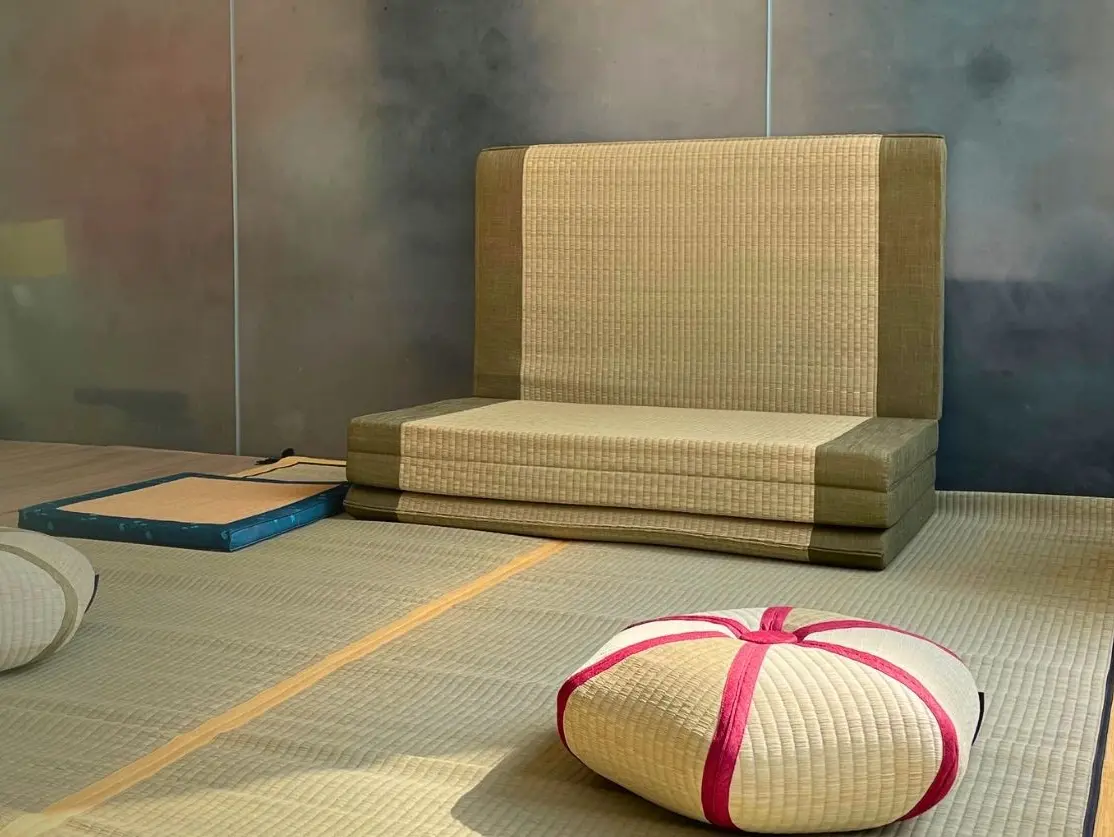In Singapore's year-round humidity, your flooring choice isn't just about aesthetics—it's about your family's health. While carpets have long been the go-to choice for comfort and warmth, there's a growing wellness movement toward tatami flooring that's worth your attention. Let's dive into the hygiene comparison that might just change how you think about your home's foundation.
Why Carpets Struggle in Singapore
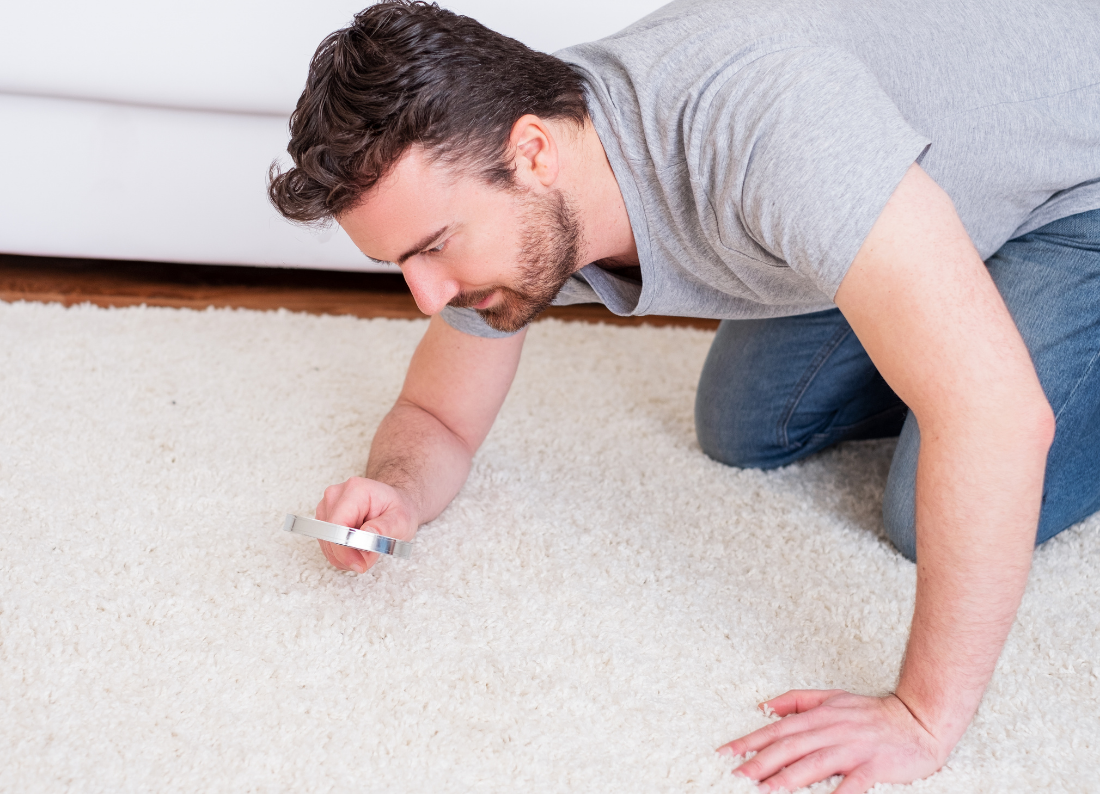
Singapore's tropical climate presents unique challenges for carpet hygiene. With relative humidity often exceeding 80%, carpets become inadvertent breeding grounds for unwanted microscopic guests.
Dust mites, those invisible creatures that thrive in humid environments above 55% relative humidity, find carpets particularly irresistible.
The problem isn't just aesthetic, it's deeply personal. Every day, dead skin cells, pet dander, and moisture accumulate in carpet fibers, creating what experts call "the perfect storm" for allergens. In Singapore's climate, this means carpets can harbor up to 100,000 dust mites per square gram, along with their droppings that trigger asthma, eczema, and respiratory issues.
Nature's Air Purifier: The Tatami Advantage
Enter tatami, Japan's ancient flooring wisdom that's surprisingly relevant to modern wellness. Made from igusa (rush grass), tatami mats possess remarkable natural properties that work harmoniously with humid climates rather than against them.

The secret lies in Igusa's cellular structure. Igusa's natural antibacterial properties help prevent odors and foot fungi, while its moisture-regulating abilities actively manage humidity levels. The woven Igusa also provides natural air purification by absorbing odors and harmful substances, making tatami a healthy choice for homes.
Think of tatami as your home's breathing system, it inhales excess moisture during humid days and releases it when conditions are drier, maintaining optimal comfort naturally.
The Maintenance Reality Check
Here's where honesty matters. Tatami isn't maintenance-free, but it's differently demanding than carpets. While carpets require frequent deep cleaning to combat embedded allergens and potential mold growth, tatami needs periodic airing to prevent moisture buildup.
The key difference? Carpet problems are often invisible until they affect your health. Tatami care is proactive and visible; you can see when it needs attention, making maintenance transparent and manageable.
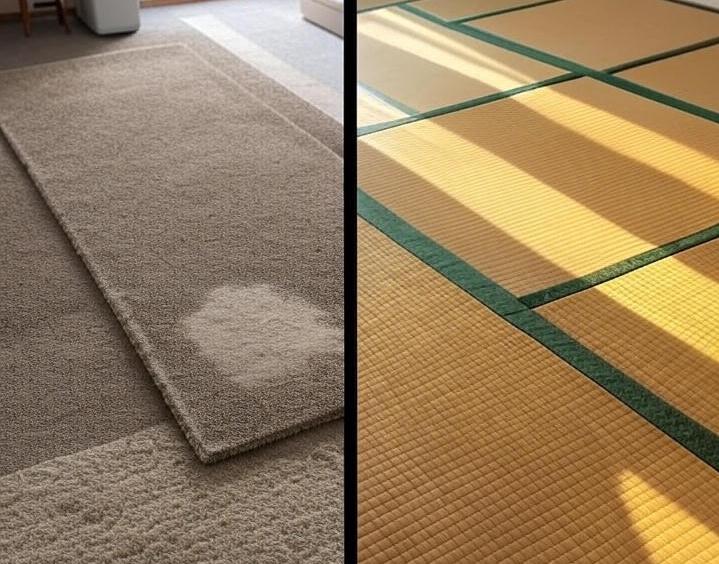
Professional cleaning services (like our annual deep-clean offering) help maintain tatami's natural properties, but day-to-day care is refreshingly simple: gentle vacuuming, occasional wiping, and ensuring proper ventilation.
The Minimalist Wellness Connection

Today's wellness movement embraces minimalism not just for mental clarity, but for physical health. Tatami aligns perfectly with this philosophy; fewer synthetic materials mean fewer chemical off-gassing concerns, while the natural fiber composition supports better indoor air quality.
This isn't about perfection, it's about making conscious choices that support your family's wellbeing. When you choose tatami, you're choosing a surface that works with your home's environment rather than fighting against it.
Making the Switch: Practical Considerations
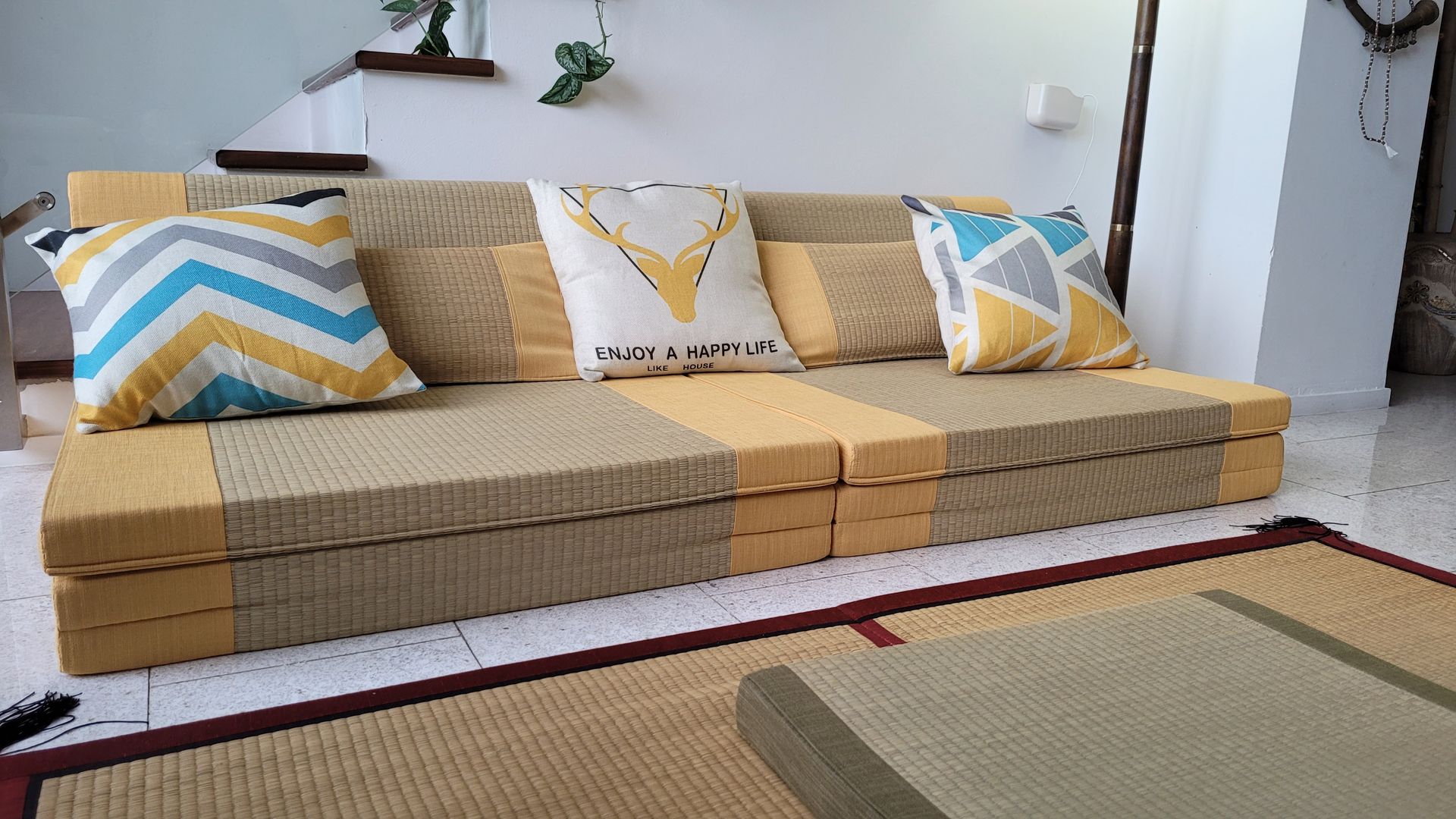
Dust mites require moist conditions to survive, with ideal conditions being areas with high humidity (above 55% relative humidity). In Singapore's climate, this makes tatami's moisture-regulating properties particularly valuable.
The transition to tatami doesn't require a complete home overhaul. Start with high-use areas like bedrooms or living spaces where you spend the most time. Many families find that even a partial tatami 9-in-1 sofa bed significantly improves their home's air quality and reduces allergy symptoms.
Your Health Investment
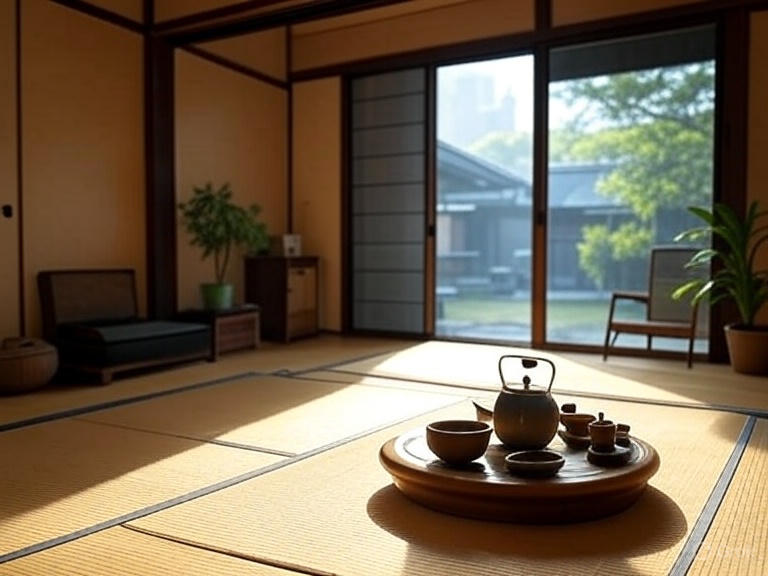
Choosing between carpet and tatami isn't just about flooring, it's about creating a living environment that supports your family's long-term health. While carpets might offer immediate comfort, tatami provides sustained wellness benefits that compound over time.
In Singapore's unique climate, tatami's natural properties offer a compelling alternative to traditional flooring. It's not just about following trends; it's about making informed choices that align with your wellness goals.
Ready to experience the difference? Sometimes the most profound changes start from the ground up—literally.
